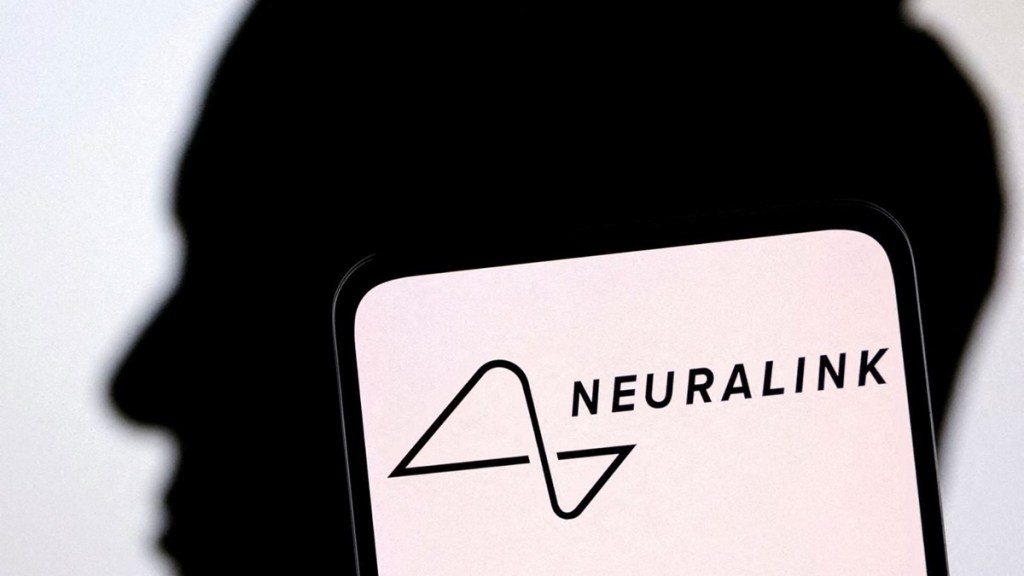Tech billionaire Elon Musk is known for his tall claims. Recently, he reshared a post on social media platform, X, that claimed Neuralink has the potential to fully cure paralysis.
“I am confident this will happen someday,” Musk reposted. Neuralink is one of the growing number of companies that are trying to refine and ultimately commercialise a technology that has intrigued researchers across the world. Known as brain-computer interface (BCI), the technology is at the forefront of many millions of dollars of research funding.
According to a report by BBC, Neuralink’s device, about the size of a coin, is inserted in the skull, with microscopic wires which can read neuron activity and beam back a wireless signal to a receiving unit. The company has run trials in pigs and claimed that monkeys can play a basic version of the video game Pong. The chip received approval from the US Food and Drug Administration for human trials in May 2023. Earlier, the federal body had refused to allow Neuralink to implant a brain chip in humans, citing safety concerns.
In 2024, Neuralink had successfully implanted its first wireless brain chip into a human. Earlier this month, Musk announced that Neuralink’s brain-computer device has been implanted in a third patient and the company has plans for about 20 to 30 more implants in 2025.
“We’ve got now three humans with Neuralinks implanted and they’re all working well,” Musk said during an event in Las Vegas this week that was streamed on X, his social media service.
According to a report by Bloomberg, the company currently has two US studies for its devices registered with the Food and Drug Administration. The Prime Study, designed for an estimated five patients, allows paralyzed patients to control external devices such as computers or smartphones with their minds. A second study, Convoy, is designed for three patients, and allows them to control devices such as assistive robotic arms.
How Neuralink’s brain chip can help patients with paralysis?
In March 2024, the tech billionaire offered a peek Wednesday into how a quadriplegic person is using its brain implant to control a computer. Musk’s brain science startup, Neuralink released a nine-minute video in which its first human patient, who is paralyzed below his shoulders, appears to move a cursor across a laptop screen with nothing but his thoughts. The video shows him playing chess and turning off the laptop’s music.
According to a report by NBC News, the patient had lost all movement and sensation in his arms and legs after a diving accident about eight years ago. “It’s all being done with my brain. If y’all can see the cursor moving around the screen, that’s all me. It’s pretty cool, huh?” he said, with a Neuralink employee by his side.
In the Neuralink video, Arbaugh talks about the process he underwent to train on the device after doctors implanted it in January. He said that he would think about moving his hand and that, eventually, moving the computer cursor became second nature.
“It just became intuitive to me to start imagining the cursor moving. It was like using The Force on the cursor, and I could get it to move wherever I wanted,” he said, using a “Star Wars” reference.
“Every day it seems like we’re learning new stuff,” he said, as quoted by NBC.
What experts say?
Scientists who have worked on technology to treat certain disabilities by tapping into the body’s nervous system have told NBC News that Neuralink appeared to have made significant gains however noted that the company’s trial is in its early stages and that not much information had been released publicly.
Dr Praveen Gupta, Principal Director & Chief of Neurology, Fortis Hospital told Financial Express.com: “Neuralink is a very, very innovative and interesting device where a chip is implanted in the brain that decodes brain impulses and transmits them into electronic programs. These programs can allow human beings with paralysis to control their limbs, their body, and other functions with their thoughts, because it overcomes the transmission defect in the brain and allows the impulses to be transmitted without wires, with human thought being converted into digital or electronic impulses, giving paralyzed individuals the chance to move.”
The human trials of the Neuralink brain chip have already started. It is a six-year trial, and the first patient has been recruited, where we will know whether this chip’s theoretical potential of converting brain thoughts into electronic impulses and using that to coordinate the limbs or improve paralysis translates into reality, Dr Gupta revealed.

